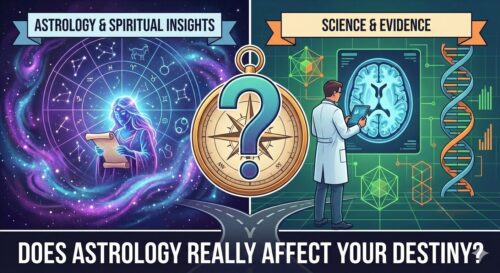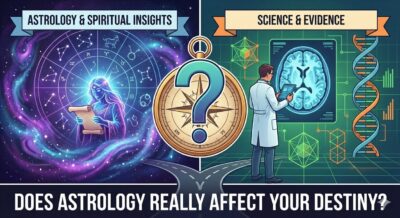The Celestial Compass: How Astrology Unlocks Your Destiny, Enhances Self-Awareness, and Guides Your Life Path
Introduction: In a world of constant change and uncertainty, many of us seek guidance and a deeper understanding of our purpose. For centuries, people have turned to the ancient wisdom of astrology, a system that interprets the positions of celestial bodies to provide insights into human personality, relationships, and life events. While some view it as a pseudoscience, millions of people worldwide find profound meaning and comfort in its principles. Astrology isn’t about predicting every detail of your future, but rather about providing a roadmap for your journey. It serves as a celestial compass, helping you navigate life’s challenges and opportunities. In this comprehensive guide, we will explore the rich history of astrology, its practical applications in modern life, and how it can be a powerful tool for self-discovery and personal growth.
1. The Ancient Roots of a Celestial Science: From Rome to the Stars
Astrology is one of the oldest forms of divination, with a history that spans thousands of years and multiple civilizations. Its influence on ancient societies was far-reaching and deeply integrated into their cultural and political fabric.
- Astrology in Ancient Rome: The Romans, known for their pragmatic approach to life, considered astrology an essential tool for predicting outcomes and understanding the will of the gods. Roman astrologers, or mathematici, were consulted on matters of great importance, from launching military campaigns to making key political decisions. The positions of the planets and stars were believed to hold the key to success or failure, and this belief was deeply rooted in the Roman worldview. This system was so influential that some emperors employed personal astrologers to guide their reigns, seeing the cosmos as a reliable source of information.
- Western Astrology and Its Greek Origins: The form of astrology we are most familiar with today—Western astrology—evolved from the traditions of ancient Greece and Rome. The Greeks adopted and refined the Babylonian system of celestial observation, creating the zodiac signs and the intricate network of houses and aspects. This system provided a framework for interpreting how celestial movements affect earthly events and individual destinies. It was a tool not just for fortune-telling, but for understanding fate and the interconnectedness of all things.
- Astrology as an Early Form of Science: Before the clear distinction between science and spirituality, astrology was considered a respected field of study, closely related to astronomy. Astronomers of the past, like Johannes Kepler and Galileo Galilei, were also practicing astrologers, using their knowledge of celestial movements to create horoscopes and advise rulers. The historical foundation of astrology shows us that it was once a serious and scholarly pursuit, valued for its ability to bring order and meaning to a chaotic world.
2. Decoding Your Natal Chart: A Blueprint for Your Personality and Destiny
At the heart of modern astrology lies the natal chart—a unique celestial blueprint of the heavens at the exact moment of your birth. By interpreting this chart, astrologers can offer profound insights into your personality, relationships, and life’s purpose.
- The Zodiac and Your Sun Sign: Your most well-known astrological identity is your Sun sign, which represents your core personality and ego. The twelve signs of the zodiac—from fiery Aries to intuitive Pisces—each have their own unique characteristics and traits. However, your Sun sign is just one piece of the puzzle. A full natal chart includes the positions of all the planets, from the emotional Moon to the transformative Pluto, each influencing a different aspect of your being.
- The Horoscope: A Daily Guide: The horoscope, a staple of modern media, is a simplified representation of astrological predictions. While daily horoscopes in magazines and apps are often generalized, they can serve as a fun and insightful way to reflect on your day. For many, reading their horoscope is a small ritual that provides a moment of self-reflection and a new perspective on their challenges and opportunities. While not every prediction will be accurate, they can offer a positive framework for approaching life.
- Astrology and Compatibility: One of the most popular uses of astrology is to understand romantic compatibility. By comparing two individuals’ natal charts, astrologers can identify areas of harmony and potential conflict. This doesn’t mean that a relationship is destined to fail or succeed, but rather that it can help you understand your partner’s unique communication style and emotional needs. Astrology, in this sense, is a tool for empathy, helping you build stronger, more understanding relationships.
3. Astrology as a Tool for Personal Growth and Empowerment
Beyond predicting the future, astrology can be a powerful catalyst for personal growth and self-awareness. It helps us understand our strengths, weaknesses, and the hidden patterns that shape our lives.
- The Lion’s Gate and Celestial Portals: Astrology is often linked to powerful celestial events that are believed to open portals for personal transformation. The Lion’s Gate is a well-known example, occurring when the star Sirius aligns with the Sun, creating a surge of cosmic energy. Many believe that during this time, it’s easier to manifest intentions, release old patterns, and connect with a higher sense of purpose. These events, whether you believe in their spiritual power or not, can be a great time for setting intentions and reflecting on your life’s direction.
- Astrology vs. Astronomy: The Key Difference: It is crucial to understand the distinction between astrology and astronomy. Astronomy is the scientific study of celestial objects and phenomena, using observation and data to understand the universe. Astrology, on the other hand, is the interpretation of these movements to gain personal insights. While they share common roots, astronomy is a field of hard science, whereas astrology is a system of spiritual and philosophical belief. Both are valid in their own right, and a true appreciation of one can often deepen your understanding of the other.
- The Power of Conscious Choice: Astrology is not about fatalism. Your natal chart does not dictate every move you will make, but rather shows you the cosmic tendencies and potentials you carry. Free will is an essential part of the equation. Astrology gives you the information, but you are the one who makes the choices. This perspective empowers you to take control of your destiny, using the celestial roadmap to make more informed decisions and navigate life’s challenges with greater wisdom.
4. Navigating the Modern Astrological Landscape: From Apps to Authenticity
The digital age has brought astrology to the masses through a proliferation of apps, websites, and social media accounts. While this has made it more accessible, it also requires a discerning eye.
- Astrology Apps: Entertainment or Insight? Astrology apps have made daily horoscopes and compatibility readings a simple click away. While they can be a fun and quick way to engage with astrology, it is important to remember that they often provide generalized results based on a simplified algorithm. For true, personalized insight, a professional astrologer who can interpret the complex nuances of your natal chart is a much better choice. Treat apps as a form of entertainment or a starting point, not as a definitive guide for major life decisions.
- The Importance of Caution and Healthy Skepticism: While astrology can be a profoundly positive force in your life, it is crucial to approach it with a healthy dose of skepticism. Never rely solely on astrological predictions for critical decisions, such as financial investments, medical treatments, or major life changes. Use your own rational judgment, intuition, and research. Astrology is a complement to informed decision-making, not a replacement for it.
- Astrology and Emotional Well-being: For many people, astrology is a form of self-care. It provides a sense of order in a chaotic world and validates their feelings and experiences. Understanding why you are prone to certain emotions or actions based on your chart can be incredibly freeing. It’s an act of self-love that can help you become more compassionate toward yourself and others.
Conclusion:

Astrology, with its ancient roots and modern revival, remains a powerful and influential force in society. It is a tool that provides a unique lens through which to view our lives, our personalities, and our relationships. Whether you believe in it as a spiritual guide, a tool for personal growth, or simply a form of entertainment, there is no doubt that it has a profound impact on millions of people. By embracing its wisdom with an open mind and a healthy dose of skepticism, you can use the stars as a celestial compass to navigate your life’s journey with greater purpose, clarity, and self-awareness. Ultimately, your destiny is shaped not by the stars alone, but by the choices you make every single day.
